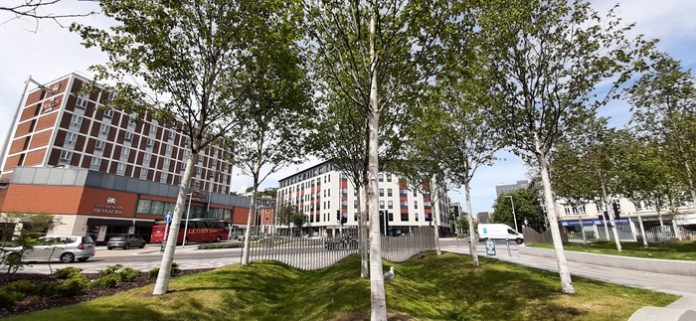Swansea’s new-look Kingsway has won international recognition for its focus on sustainability.
The applause comes for a regeneration project that saw the location transformed into a welcoming environment for motorists, pedestrians, cyclists, businesses and public transport users.
Swansea Council led the £13m scheme – and the applause comes in the form of a positive assessment in civil engineering scheme Ceequal.
Council leader Rob Stewart said: “The Kingsway – previously four lanes of road – is now a green and attractive sustainable environment where people like to live, work and spend quality time with family and friends.
“Ceequal recognition is a prestigious honour and I congratulate all involved in this very special regeneration project including the contractor Griffiths who had input into the assessment.”
Mark Thomas, the council’s cabinet member for environment enhancement and infrastructure management, said: “The Kingsway is pivotal to our £1bn city regeneration that continues in locations such as Copr Bay, Wind Street, 71-72 Kingsway and Castle Square – with a lot more to come. We’re protecting and creating thousands of city centre jobs.”
The Kingsway has been transformed in work that continued through the pandemic. With the road reduced to two lanes, the location gained expansive areas for pedestrian and cycling routes, green landscaping and other places to relax.
It enabled two-way traffic and improved landscaping on neighbouring roads. More than 170 new trees were introduced in one of the city centre’s biggest ever tree-planting operations.
Ceequal is an international evidence-based sustainability assessment, rating and awards scheme for civil engineering, infrastructure, landscaping and works in public spaces. It’s operated by industry shareholders.
The Kingsway scheme’s “good” rating by Ceequal followed rigorous examination of the project’s design, construction and maintenance considerations.
The Kingsway Infrastructure Project included £4.5 million of WEFO funding.



















